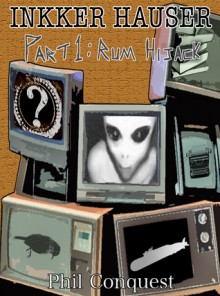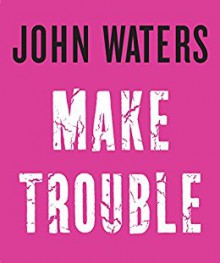
I write this review as a member of Rosie’s Book Review Team (authors, if you are looking for reviews, check here), and I freely chose to review an ARC copy of this novel. It came highly recommended, and it’s one of those books that I’m sure won’t leave anybody indifferent.
This is not a book heavy on plot. It is a novel narrated in the first person by a would-be writer stuck in writers’ block and seemingly unable to unleash the immense and unique talent for literature he believes he has. He uses all the tried and tested methods most readers will be familiar with (drinking heavily, navel-gazing, taking drugs, isolating himself, constantly trying to call the muses…) and some pretty unique ones (he is obsessed with submarines, and a particular Russian submarine disaster; he is also interested in air disasters; he has a penchant for peculiar interior decorating and a unique sense of fashion; he loves his fish and model-making [submarine again]). He adopts a variety of names and identities throughout the book, and seems intent on outraging and destroying things around him in frustration for not being able to create something, although when he dreams of literary fame, it isn’t what most people would think a writer would dream about.
Rather than helping, everything he tries seems to send him down a slippery slope of self-destruction (and a fair deal of vandalism and petty crime as well), and as readers, we are privileged witnesses of this journey towards… Well, if you read it you can decide by yourselves.
Although Bukowski has been mentioned in several reviews, the main character made me think of several books and authors I’ve read as well, some quite recently. He did remind me of the main character in Malibu Motel, who is so self-involved and unrealistic that he keeps digging holes for himself. Inkker (to give him one of his adopted names) has more insight (even if fleeting), and there is something more genuine about him, although he keeps it under wraps and well hidden. It also reminded me of Eileen and other protagonists of Ottessa Moshfegh’s work, but her characters are more extreme and even though less likeable, we normally get more of a background and a better understanding of where they are coming from. And, the way Inkker’s angry simmers and boils until it explodes in outrage, reminded me of a fantastic essay I read many years back by John Waters (the film director) called ‘101 Things I Hate’ published in his collection Crackpot: The Obsessions of John Waters. What starts like a list of annoying things Waters is sharing with us, gets more and more outrageous as he gets more and more irate, and you can hear him shouting at you from the page by the end. It’s impossible not to nod and agree at many of the items on the list, but there is something at the same time darkly funny and scary in the way his emotions run so raw and close to the surface.
The book is beautifully observed and written, although, of course, it being in the first-person and the narrator a pretty unreliable one, we have to take all his comments and his opinions with a huge pinch of salt, and that goes for his depiction of other characters (and there are a few: an indie writer —of all things— and his girlfriend, an elderly neighbour, the guests at a disastrous dinner party, the locals at a pub, a couple of women, one he had a one-night-stand with and one he goes on a date with…). As you might suspect from the description, he is not particularly skilled in the social graces either and that results in some scenes that feel like watching a train wreck. It’s impossible to look away even when you know it’s going to get ugly, and I’m sure some of them will remain imprinted in the minds of readers for a long time.
Rum Hijack, which was first published in two separate parts, is darkly comedic (his quips at most writers, especially at self-published ones, will be ‘appreciated’ by those in the profession although perhaps not so much by readers not familiar with Twitter or with indie authors’ marketing techniques), and although in the face of it there is nothing particularly endearing about the protagonist, there is such vulnerability, such contradictions (he is reckless but careful, anarchic but worried about getting caught, a self-proclaimed outsider but eager to be admired and loved), such need, and such self-loathing behind many of his actions that it’s impossible not to keep reading about his adventures and hope that things might take a turn for the better.
This is not a book for readers eager for adventure and action, who love a complex plot and consistent characters. It is not for those who dislike first-person narrations or prefer clean, edifying and inspiring plots and messages. If you enjoy literary fiction, books about writing (or writers’ block), are eager to find new voices, and love your humour very dark, check a sample of this book. You will either love it or hate it (yes, it’s a marmite kind of book). It’s up to you.
Oh, as a clarification to readers here on Booklikes, my review refers to the whole novel, not only to part one. It's called Rum Hijack, and I couldn't find it here.

 Log in with Facebook
Log in with Facebook 








